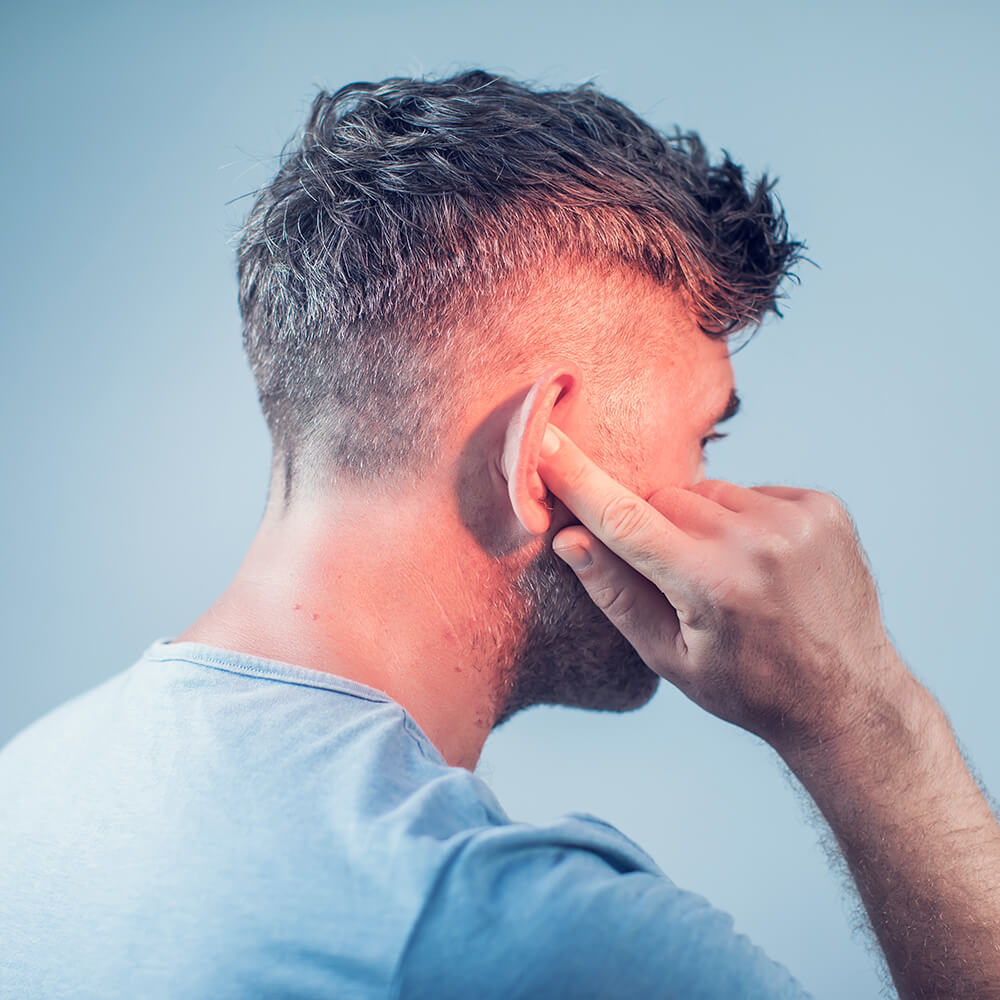Tinnitus Treatment
The varying sound of tinnitus
Tinnitus experiences among people can vary wildly. It can change in:
- Tone: Most people experience ringing, but others reported a whistling, buzzing, or crackling.
- Frequency: It can be a high, medium, or low-pitched noise.
- Location: The noise may only be in one ear, on top of the head, or it may be tricky to pinpoint precisely where it comes from.
- Volume: It can vary in volume on any given day.
- Duration: The noise could be continuous, or it could be intermittent.

Types of tinnitus
There are two main tinnitus types, based on possible causes.
Subjective tinnitus — which is much more common and makes up 95 percent of all cases — is when only the person experiencing tinnitus can hear the sounds. This type is heavily related to hearing loss. When hair cells inside the ear are damaged, the brain does not receive the auditory signals it expects and creates the sound illusion to make up for those missing signals. Ototoxic drugs, or drugs that damage the nerves in the ear, may also cause subjective tinnitus.
Objective tinnitus is much less common and occurs when someone else — such as a doctor — can hear the sounds a person with tinnitus hears as well. This type is commonly linked to cardiovascular problems like damaged blood vessels or a heart murmur. In rare cases, pulsatile tinnitus, or hearing one's heartbeat in the ear, can signal a serious medical complication and should be evaluated medically if it occurs frequently.
What causes tinnitus?
Tinnitus is closely related to hearing loss and can develop slowly or suddenly. Repeated or prolonged exposure to heavy noises can damage the hair cells in the cochlea and make it challenging to hear specific frequencies.
When the brain tries to compensate for this hearing loss, the neurons react by creating the illusion of sound compensating for the missing frequencies. Therefore, a person can hear such a whistle in the high-frequency range with a high tone, and a low-frequency hearing loss results in a lower sound like a roar.
It can also be caused by medicinal products that are toxic to the ear, and discontinuing the use of those medicinal products can help.
In some cases, the cause is treatable and straightforward as an earwax build-up, which can cause inner ear vibrations and pressure.
What are the treatment options?
There is no single cure for it at this time. However, many treatment options can significantly improve the quality of life for those experiencing chronic ringing or ear buzzing.
The best treatment choice for each person who experiences it depends on a variety of individual patient-specific factors. If you are looking for tinnitus treatment, please feel free to contact us!
